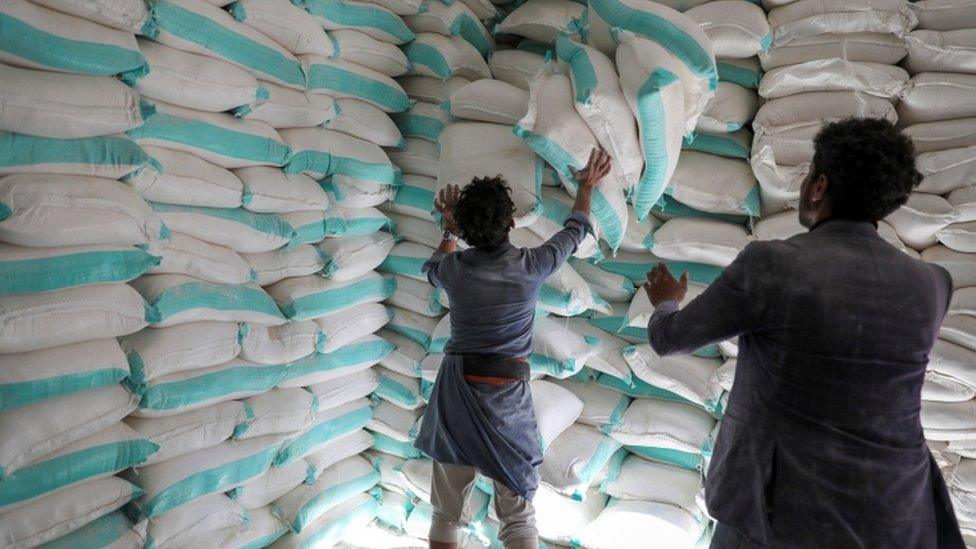World Food Programme: What is the UN body and what does it do?
- Published
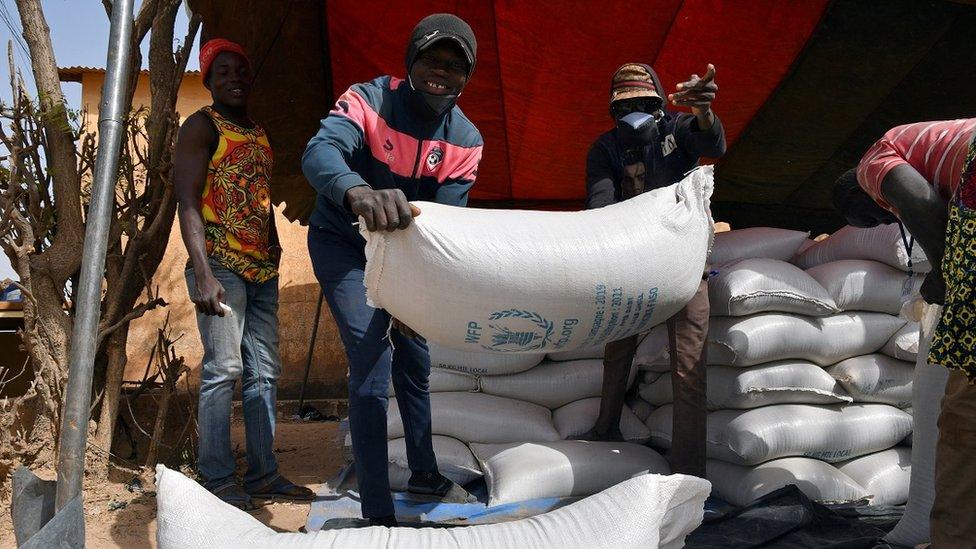
The WFP said it provided assistance to 97 million people last year
This year's Nobel Peace Prize has been awarded to the United Nations World Food Programme (WFP), commending its efforts to combat world hunger.
The UN body was also praised for "bettering conditions for peace" and preventing the use of hunger as a weapon of war.
The Nobel Committee said the WFP's work was "an endeavour that all the nations of the world should be able to endorse and support".
Here's what you need to know.
How, why and when was it created?
Founded in 1961, the WFP delivers food assistance to vulnerable communities, particularly those affected by war.
It was created at the behest of the administration of US President Dwight D Eisenhower to provide food aid through the UN system, which was still in its infancy.
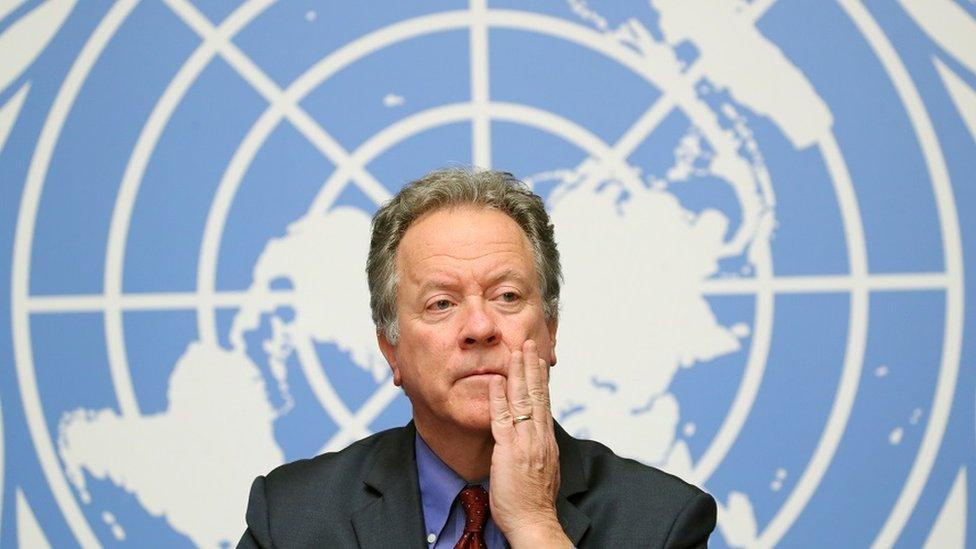
Current WFP chief David Beasley praised staff who "put their lives on the line every day"
The programme has intervened in several global emergencies since. Last year alone, the WFP said it assisted 97 million people across 88 countries.
Governments are the principle source of its funding - its largest donations coming from the US, Germany and the UK. Money is also given to the WFP from corporations and individuals.
What does it do on the ground?
The programme's overarching goal is to bolster peace and stability by promoting food security and improved nutrition.
To this end the WFP is involved with a range of projects, including ones to strengthen food supply chains, local markets and resilience to local climate risks.
Two of its main current areas of work are:
Yemen
The WFP feeds 13 million people - almost half of Yemen's population - as the country grapples with civil war and endemic poverty
Yemen crisis: Five years of hunger, five years of war
It is hampered by poor infrastructure, funding cuts, limited access and a lack of international co-operation
In April, the WFP announced that some donors had stopped their aid over concerns that deliveries were being obstructed
It says it urgently needs more than $500m ($385m) to ensure uninterrupted food assistance until March 2021
Read more: Yemen's humanitarian crisis near breaking point
South Sudan
Since gaining independence from Sudan in 2011, areas of South Sudan have been racked by hunger and poverty, spurred by inter-ethnical violence
The WFP says almost seven million people - 60% of the population - are struggling to find enough food to eat every day
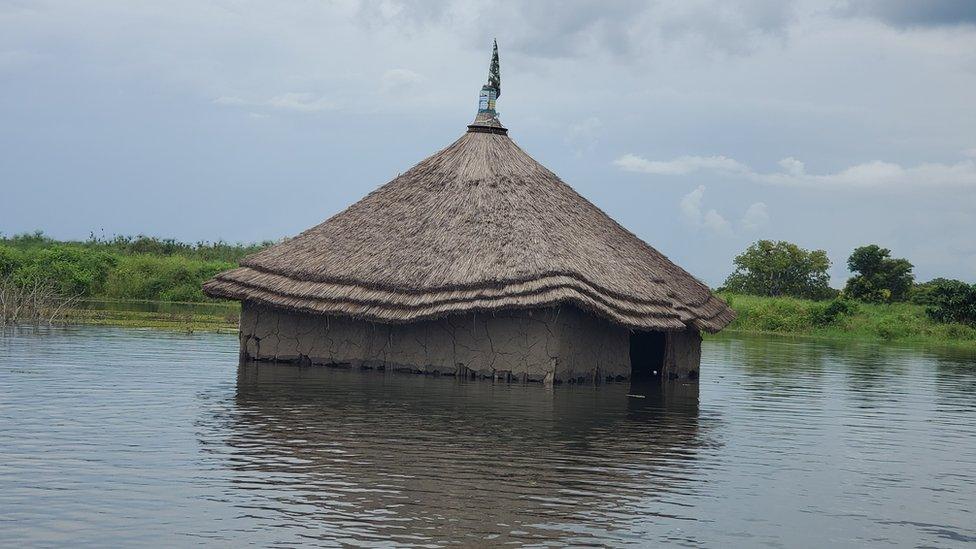
In South Sudan, large areas of land near the River Nile are regularly submerged by seasonal flooding
The WFP provides food aid to half a million people, cash assistance, school meals and treatment for malnutrition
It says it needs $596m to ensure uninterrupted food assistance until March next year
Matthew Hollingworth, the group's country director, told the BBC that currency and food price inflation continue cause difficulties but the WFP has lessened dependence on outside support and promoted stability in the region
What other challenges is it facing?
Despite its successes, funding cuts have proved a hindrance to the WFP's work in many areas of the world.
Then there's Covid-19.
Earlier this year, it warned that the coronavirus pandemic could cause widespread famines "of biblical proportions".
The global outbreak has already hindered its ability to work freely around the world, as countries close their borders to curb the spread of the virus.
Are there criticisms too?
Despite its latest accolade from the Nobel Prize Committee, the WFP has been under the spotlight in the past - not always for positive reasons.
Early in its history, the group was also accused of bolstering the US economy by buying its produce. The WFP has since tried to strike a balance between purchasing locally and avoiding any potential inflation of food prices.
Some economists, such as Kenyan James Shikwati, have also argued the WFP makes some nations overly reliant on foreign aid.
And in an internal survey last year, at least 28 employees said they experienced rape or sexual assault while working at the agency. More than 640 others said they were either victims of or had witnessed sexual harassment.
- Published9 October 2020
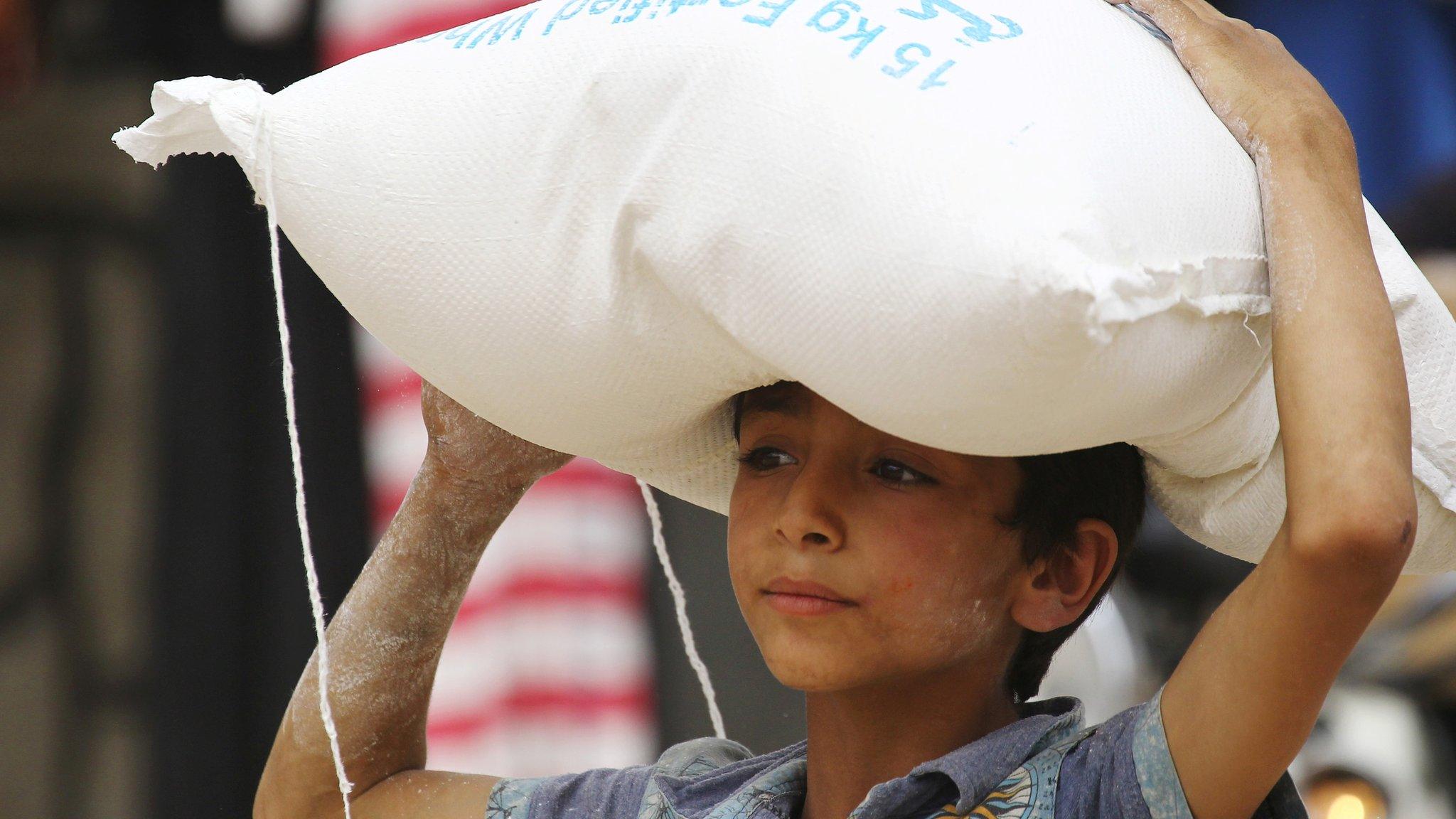
- Published21 April 2020
